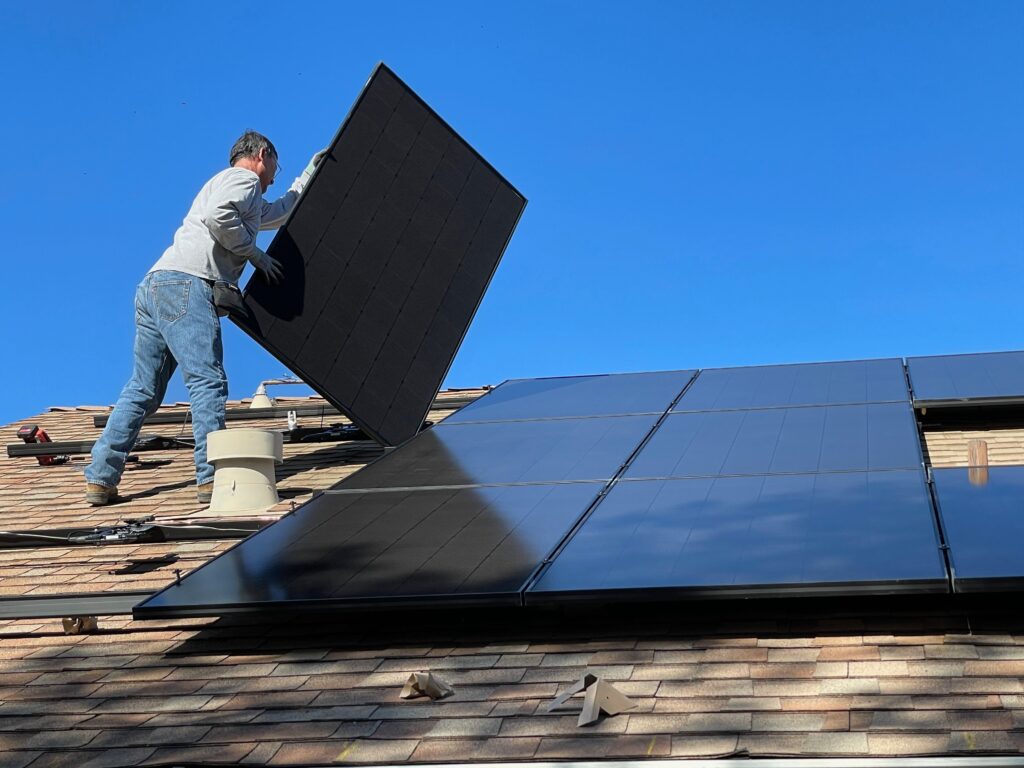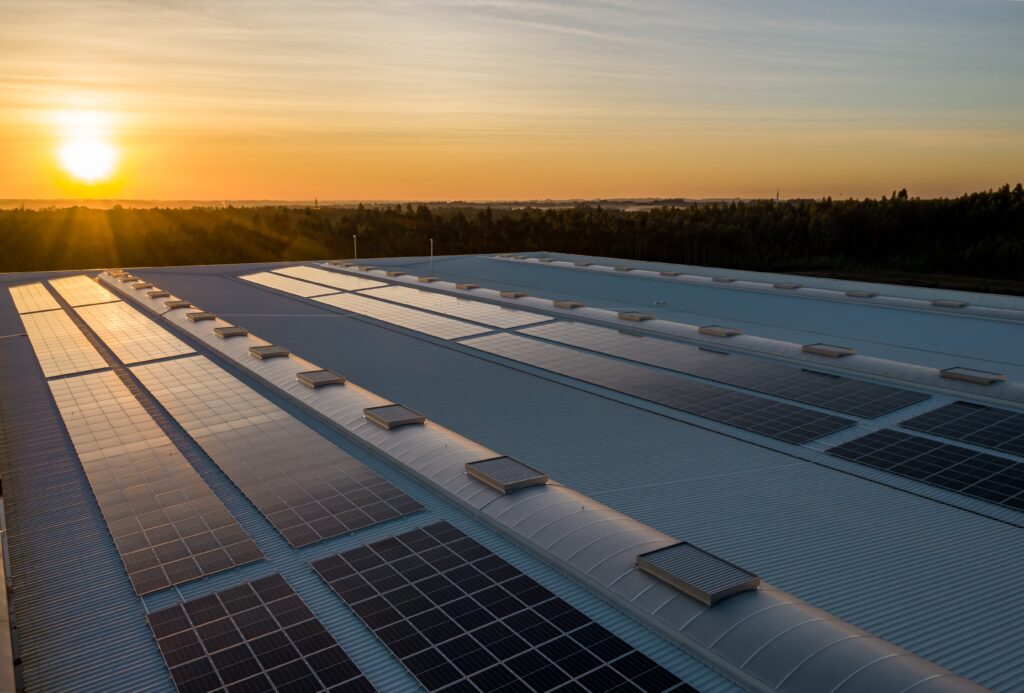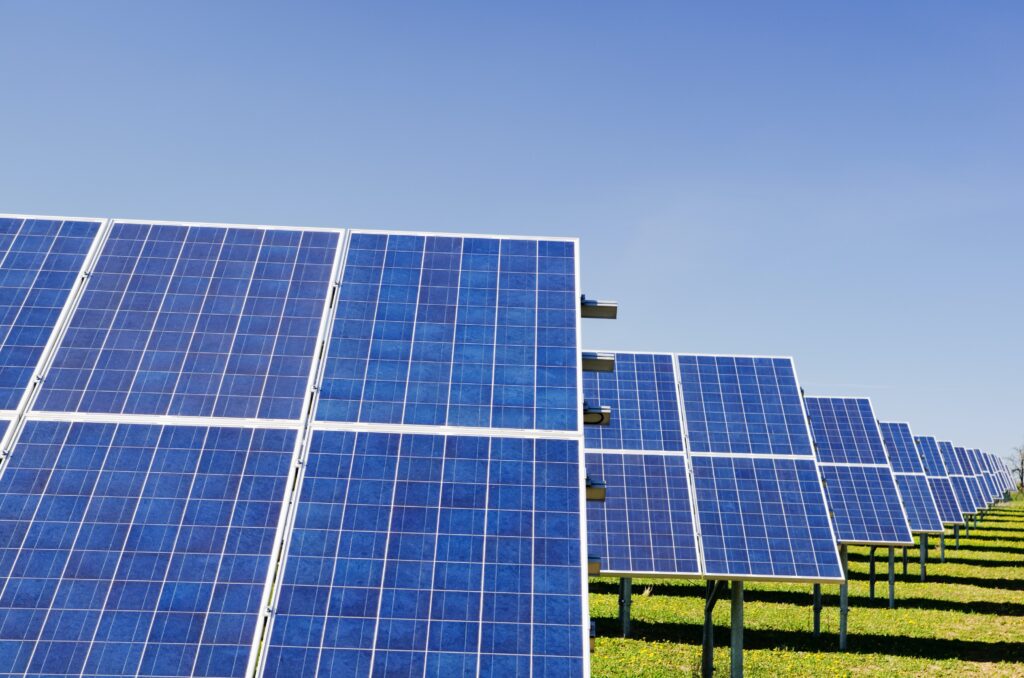Have you ever wondered how many solar panels you would need to power your fridge freezer? In this article, we will explore the answer to this question and provide you with some helpful information on the topic. So, if you’re considering going solar and want to ensure that your fridge freezer stays running efficiently, keep reading to find out all you need to know!

Understanding Fridge Freezer Power Requirements
When it comes to understanding the power requirements of a fridge freezer, it’s important to consider its energy consumption. Fridge freezers are one of the most energy-consuming appliances in a household, accounting for a significant portion of the electricity bill.
Energy consumption of typical fridge freezer
The energy consumption of a fridge freezer is typically measured in kilowatt-hours (kWh) per year. This value represents the amount of energy the appliance consumes over the course of a year under normal operating conditions. The energy consumption can vary depending on factors such as the size of the appliance, its efficiency rating, and usage patterns.
Wattage range of fridge freezers
Fridge freezers generally have a wattage range between 100 and 800 watts. The wattage indicates the power required to operate the appliance at any given moment. It’s important to note that the wattage can fluctuate depending on factors such as temperature settings, defrost cycles, and door openings.
Average daily power usage of fridge freezers
On average, a fridge freezer consumes around 1.5 to 2.5 kWh of electricity per day. This value can vary depending on factors such as the size, age, and efficiency of the appliance. It’s important to consider the daily power usage when calculating the solar panel requirements for a fridge freezer powered by solar energy.
Knowing the Basics of Solar Power
Before delving into the specifics of solar panel requirements for fridge freezers, it’s essential to understand the basics of solar power.
Principles behind solar panel operation
Solar panels harness the power of the sun to generate electricity. They consist of photovoltaic (PV) cells, which convert sunlight into direct current (DC) electricity. This electricity can then be converted into alternating current (AC) using a solar inverter for use in household appliances.
Efficiency of solar panels
The efficiency of solar panels determines how effectively they can convert sunlight into electricity. Efficiency ratings can range from 15% to 25% or more, depending on the quality and technology used in the panels. Higher efficiency panels are generally more expensive but can produce more electricity with the same amount of sunlight.
How solar power is calculated
The calculation of solar power involves considering the solar panel’s wattage, efficiency, and daily sunlight exposure. To determine the solar power output, multiply the panel’s wattage by the average daily sunlight hours and the panel’s efficiency. This calculation provides an estimate of the electricity the solar panel can generate in a day.

Essential Components in a Solar Powered System
To understand the solar panel requirements for a fridge freezer, it’s crucial to know the essential components of a solar powered system.
Role of solar panels
Solar panels are the main component of a solar powered system. They capture sunlight and convert it into electricity, which can be used to power various appliances, including fridge freezers. The number and size of solar panels required depend on the energy needs of the fridge freezer and the available sunlight.
Workings of a solar inverter
A solar inverter is responsible for converting the DC electricity generated by solar panels into AC electricity that can be used to power household appliances. It ensures compatibility between the solar power system and the electrical grid, enabling the efficient utilization of solar energy.
Functions of a solar battery
A solar battery is an optional component in a solar powered system. It stores excess electricity generated by the solar panels during the day for use during periods of low sunlight or at night. Solar batteries can provide backup power and increase the self-sufficiency of the system, helping to maximize the efficiency of solar power usage.
Determining the Number of Solar Panels Needed
To determine the number of solar panels needed to run a fridge freezer, several factors need to be considered.
Conversion of energy usage into solar panel requirements
First, calculate the average daily power consumption of the fridge freezer in kWh. Dividing this value by the average daily power output of a solar panel in kWh will give an estimate of the number of solar panels needed to cover the fridge freezer’s energy consumption.
Factors affecting the number of solar panels required
Apart from energy consumption, factors such as geographical location, available sunlight, solar panel efficiency, and desired level of energy independence can impact the number of solar panels needed. Higher latitudes or areas with limited sunlight may require additional panels to compensate for the lower energy output.
Estimates on the number of solar panels for various fridge freezer sizes
On average, a typical fridge freezer requires around 4 to 8 solar panels to cover its energy consumption. However, this number can vary depending on factors like the size of the fridge freezer, insulation levels, and energy efficiency ratings. Consulting with a solar professional can help determine the exact number of solar panels needed for a specific setup.

Impact of Geographic Location on Solar Power
The geographic location has a significant impact on the production of solar power.
How sunlight exposure affects solar power production
Sunlight exposure is directly linked to the production of solar power. Areas with high levels of sunlight exposure throughout the year will generally yield more solar energy compared to regions with limited sunlight. This is an important factor to consider when determining the solar panel requirements for a fridge freezer.
Importance of location in solar panel placement
To maximize solar power production, it’s crucial to consider the location and placement of solar panels. Panels should be installed in areas that receive the most sunlight throughout the day, and shading from trees, buildings, or other obstacles should be minimized. By optimizing the positioning of the panels, more energy can be generated and utilized for powering appliances like fridge freezers.
Areas with the most optimal solar power production
Regions close to the equator, such as parts of Africa, South America, and Southeast Asia, receive high levels of sunlight year-round, making them ideal for solar power production. However, even areas with lower average sunlight can still benefit from solar power, especially with advancements in solar panel technology and increased efficiency.
Role of Seasonal Changes in Solar Power Production
Seasonal changes can influence the production of solar power, which in turn affects the efficiency of solar powered systems.
Effects of changing seasons on solar power
During different seasons, available sunlight hours and intensity can vary significantly. Winter months usually have shorter days and reduced sunlight, resulting in lower solar power production compared to summer months with longer daylight hours. Understanding these seasonal variations is crucial for planning the solar panel requirements for a fridge freezer.
Boosting energy efficiency during winter
To mitigate the impact of reduced sunlight during winter, it’s important to focus on energy efficiency. This can be achieved by ensuring the fridge freezer is well-insulated, minimizing heat loss, and optimizing temperature settings. Additionally, using energy-efficient appliances can help reduce overall energy consumption during periods of lower solar power production.
Maximizing solar power production during summer
During summer months with increased sunlight, it’s essential to maximize solar power production. This can be accomplished by regularly cleaning the solar panels to remove any dirt or debris that may inhibit their efficiency. Additionally, adjusting the panels’ tilt angle to capture the optimal amount of sunlight can further enhance solar power generation.
Tips on Reducing Fridge Freezer Energy Consumption
Reducing fridge freezer energy consumption is not only beneficial for lowering electricity bills but also for maximizing the efficiency of a solar powered system.
Importance of regular maintenance
Regular maintenance of the fridge freezer is crucial for ensuring optimal energy efficiency. This includes cleaning the condenser coils, inspecting and replacing worn-out seals, and defrosting the freezer. By keeping the appliance in good condition, energy wastage can be minimized, resulting in lower overall energy consumption.
Controlling fridge freezer temperature
Setting the fridge freezer temperature at the recommended levels can significantly impact energy consumption. Keeping the temperature between 37 and 40 degrees Fahrenheit for the refrigerator and 0 degrees Fahrenheit for the freezer is ideal for preserving food while minimizing energy usage.
Selecting energy-efficient fridge freezer models
When purchasing a new fridge freezer, consider energy-efficient models that bear the Energy Star label. These appliances are designed to meet strict energy efficiency guidelines and can significantly reduce electricity consumption compared to conventional models. Energy-efficient fridge freezers are an excellent complement to solar powered systems, as they further minimize energy demand.
Case Studies of Solar Powered Fridge Freezers
Examining real-life examples of solar powered fridge freezers can provide valuable insights into their feasibility and benefits.
Success stories of residential solar fridge freezers
Many homeowners have successfully implemented solar powered systems to run their fridge freezers. By leveraging the power of the sun, they have achieved energy independence, reduced their carbon footprint, and enjoyed significant savings on their electricity bills. These success stories highlight the feasibility and practicality of solar powered fridge freezers in a residential setting.
Commercial uses of solar powered fridge freezers
Apart from residential applications, solar powered fridge freezers have also found applications in commercial settings. From remote off-grid locations to businesses seeking to minimize their environmental impact, solar powered fridge freezers offer an energy-efficient and sustainable solution for storing perishable goods.
Potential Costs of Running a Fridge Freezer on Solar Power
While solar power offers numerous benefits, it’s essential to consider the potential costs involved in running a fridge freezer on solar energy.
Cost of solar panel installation
The cost of solar panel installation can vary based on factors such as the number of panels required, the complexity of the installation, and the region’s pricing. It’s important to consult with solar professionals to obtain accurate cost estimates and explore financing options, including government incentives and rebates.
Overall pricing of solar powered systems
In addition to panel installation costs, the overall pricing of a solar powered system includes components such as a solar inverter, solar battery (if applicable), and other system accessories. It’s essential to consider these costs when budgeting for a solar powered fridge freezer setup.
Potential savings from using solar power
Although solar powered systems may require an upfront investment, they offer potential long-term savings. By reducing or eliminating electricity bills, solar power can lead to significant savings over the lifetime of the system. Moreover, as solar technology advances and costs continue to decrease, the return on investment for solar powered fridge freezers becomes increasingly attractive.
Future of Fridge Freezers Powered by Solar Energy
The future of fridge freezers powered by solar energy is promising, with ongoing innovations and government initiatives supporting the transition to renewable energy sources.
Emerging innovations in solar power usage
Advancements in solar panel technology, such as higher efficiency ratings and improved aesthetics, are making solar powered systems more accessible and attractive for consumers. Additionally, the integration of smart technologies and energy storage solutions is further enhancing the efficiency and effectiveness of solar power usage.
Government incentives and policies for solar power
Many governments worldwide are implementing incentives and policies to promote the adoption of solar power. These incentives can include tax credits, grants, and net metering programs, which allow solar power system owners to receive credits for excess electricity generated. These initiatives make solar powered fridge freezers more financially viable and contribute to a greener and more sustainable future.
Environmental implications of solar powered fridge freezers
Solar powered fridge freezers have a significant positive impact on the environment. By reducing reliance on fossil fuels and decreasing greenhouse gas emissions, they contribute to mitigating climate change and improving air quality. Solar energy is a clean and renewable resource, providing a sustainable solution for powering essential appliances like fridge freezers without further depleting natural resources.
In conclusion, understanding the power requirements of a fridge freezer and the basics of solar power is crucial for determining the suitable number of solar panels needed to power a fridge freezer. Consideration of geographic location, seasonal variations, and energy-saving practices are essential in optimizing the efficiency of solar powered fridge freezers. With ongoing innovations and government support, the future of fridge freezers powered by solar energy looks bright, offering environmentally friendly and cost-effective solutions for households and businesses alike.




